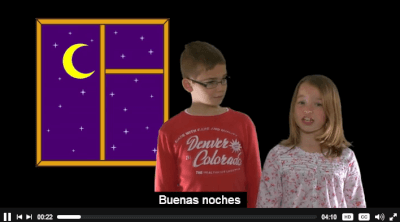Why subtitles are great for language learning
The debate about the value of subtitles for language learning goes like this:
Doesn't reading the text distract from listening to the language?
Doubt is cast. And doubt breeds frustration...
[Silent Frustration]

- Going Dutch
I recently discussed language learning with two Dutch friends. They didn't learn English at school - Dutch is of course their first language - but their English is superb. How can that be if they are not using it in daily conversation?
In the Netherlands, English language shows on TV - which account for around 20% of total programming - are not dubbed; they are subtitled.
And that is one of the primary ways in which the Dutch are learning English.
So simple.
[DUBBING IS MADNESS FOLKS!]
Imagine if the Dutch system were adopted right across the world. English would spread like wildfire - by default - and so many more people would reap the benefits of being able to speak two languages.
Theories
There are two opposing theories on the value of subtitles in language learning.
Cognitive Overload
Cognitive Overload [Daniel Gaonac'h, 1990] posits that "learners naturally focus their attention on low level operations and therefore do not activate high level operations that are nevertheless necessary in oral comprehension". [Thanks to Cécile Poussard for this quote].
In other words, the learner can't focus on listening and reading at the same time.
Dual Process
In this theory, the language learner is a knowledge constructor who actively selects and connects pieces of visual and verbal knowledge. [Michael Hinkin, 2005. Read more]
That is, the learner can focus on listening and reading at the same time.
Which theory sounds more plausible to you? And do you think it depends on the natural ability of the learner?
- Subtitles in the Speekee videos

Speekee's subtitles - in Spanish, in English, or in both languages at the same time - are there for children and parents. They serve two purposes in the Spanish learning: to complement the audio and to clear up any linguistic doubt.
So what would you say - Cognitive Overload or Dual Process?
Shall we spin a coin or just remind ourselves that whatever the case may be for adults, where kids are concerned the sky's the limit?
No doubt both theories are interesting and are worthy of consideration. The Speekee video subtitles are simply there as an aid for those who want to use them.
In the next post I'll explain how you can use the subtitles in Speekee to maximum effect.
Meanwhile, what does your child like best? Watching Speekee with subtitles or without? Are those subtitles in Spanish, or English, or both languages together? And how helpful is it for you to watch Speekee - subtitles included, with your child?
See you next time, Jim
